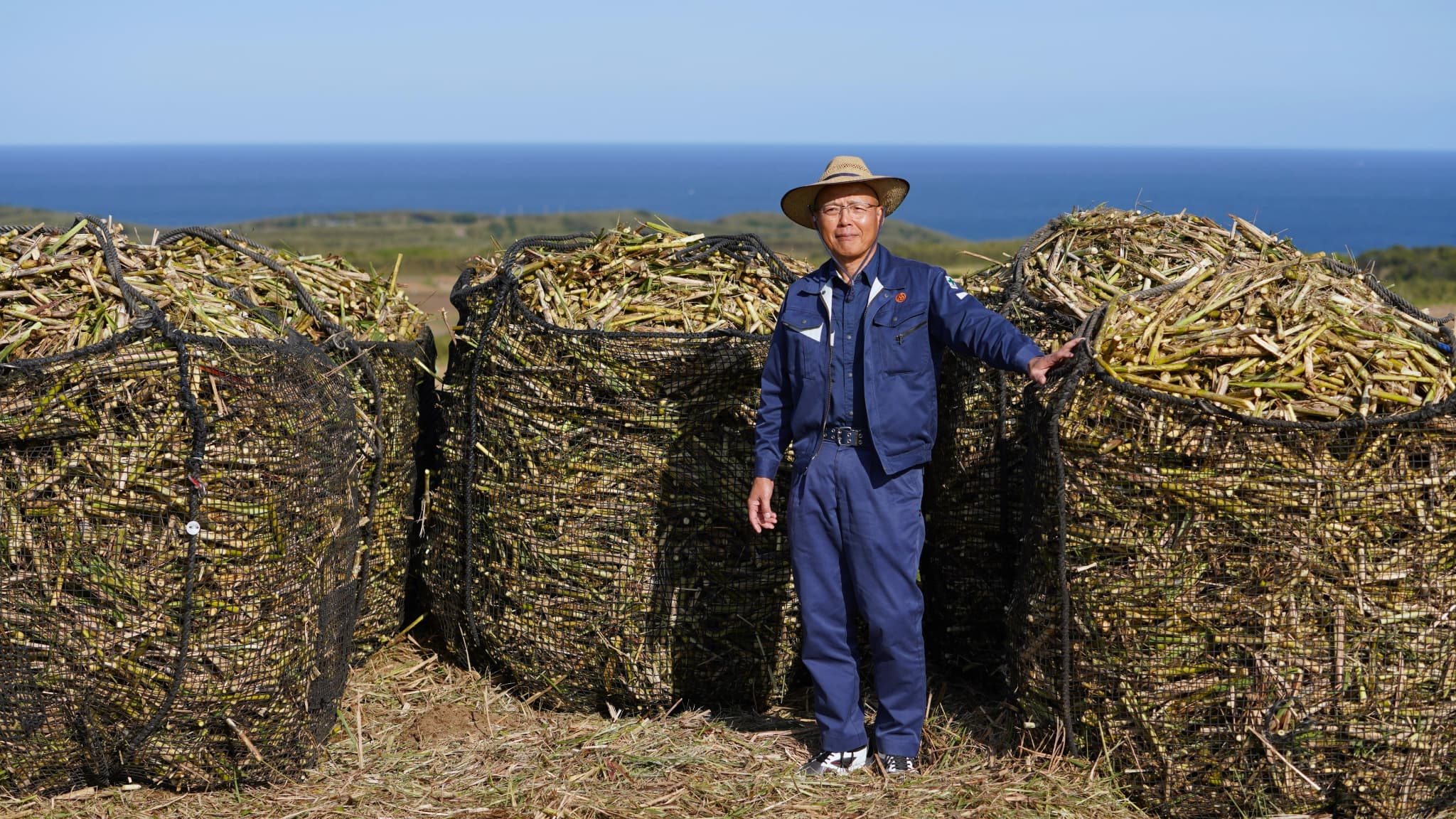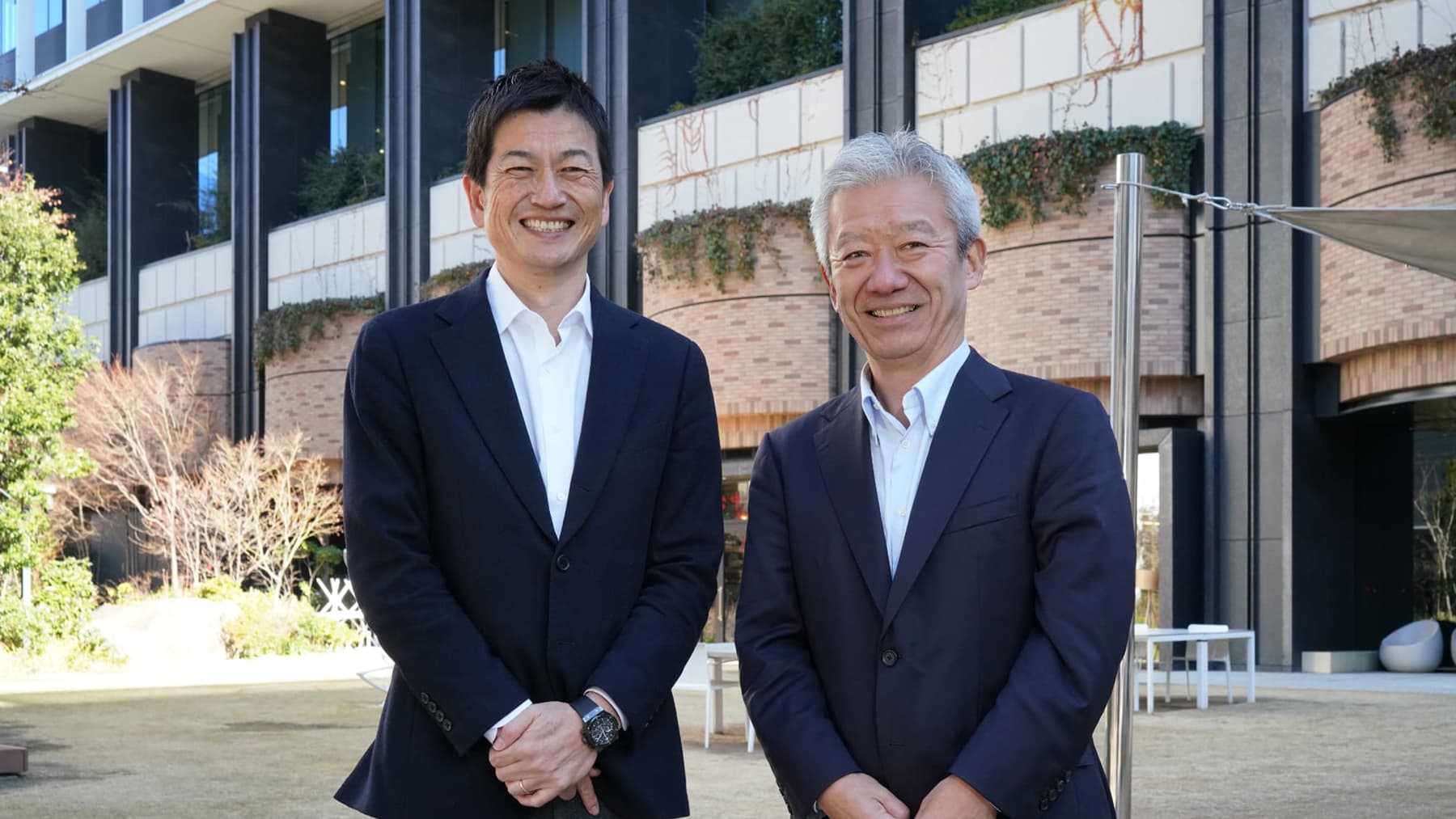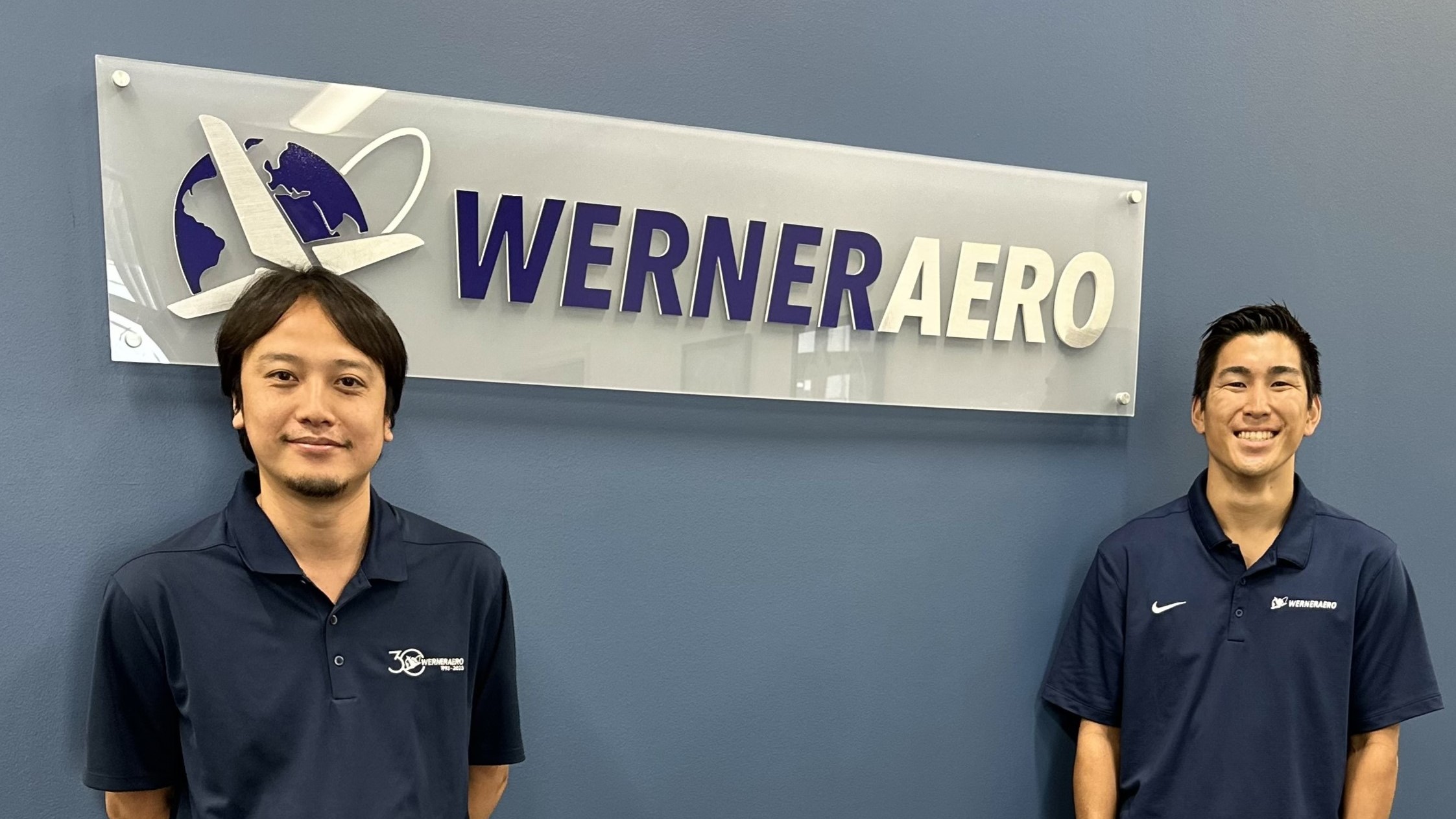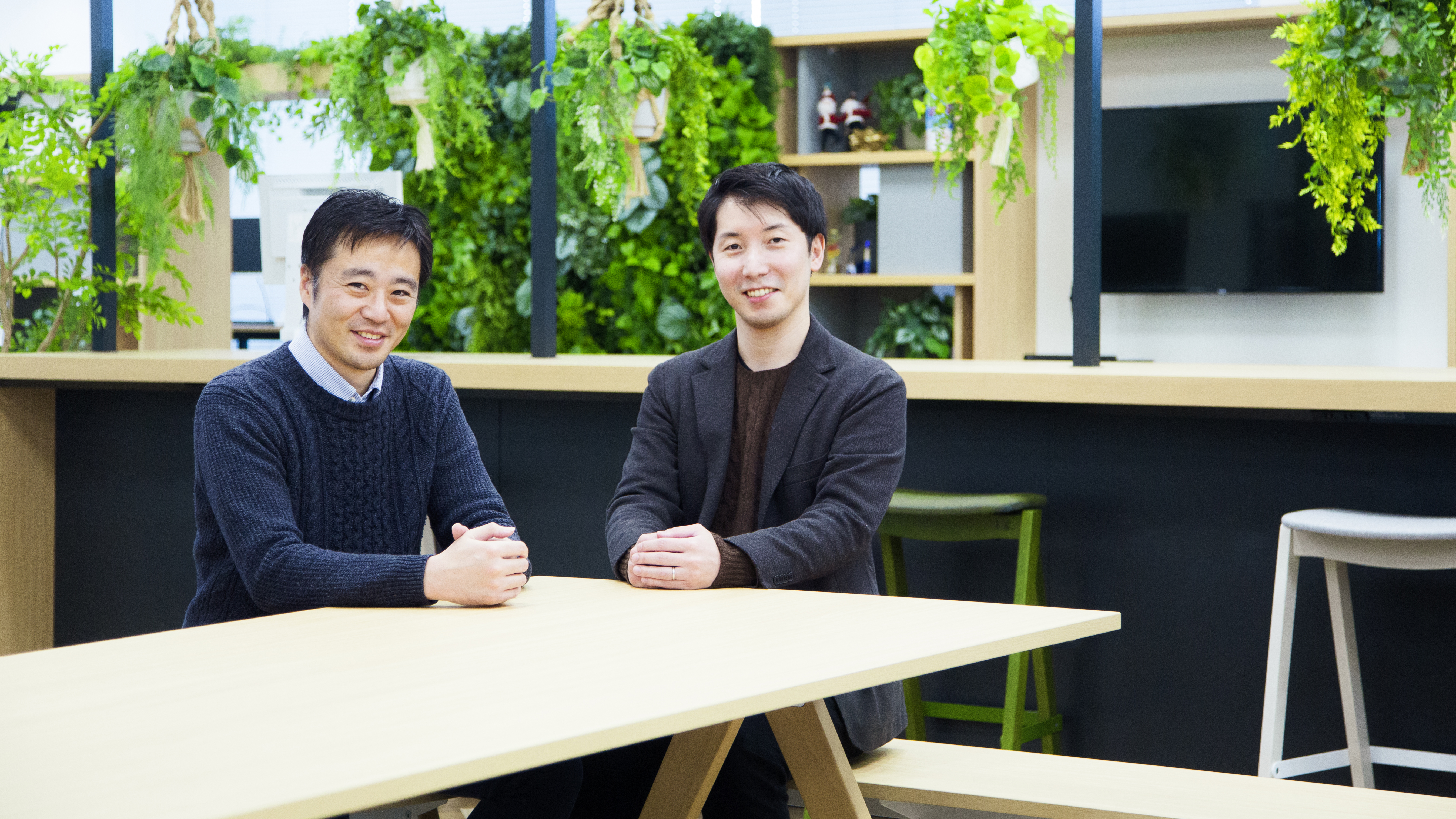
- TOP
- Enriching+TOP
- Project Managers Take Us Behind the Scenes into the Development of "Herb Yongenton"
2024.4.23
Business
Project Managers Take Us Behind the Scenes into the Development of "Herb Yongenton"

The Sumitomo Corporation Group entered the imported pork business in the 1990s and introduced the Yongenton Silky Pork® brand in 2010. Alongside securing a stable supply of pork, we have been working to create a new category of imported pork that is very tasty and also more affordable than domestically produced brands. We spoke with Motoki Tamura of Sumitomo Corporation of Americas and Hitoshi Fujita of Food SBU, members of the project behind the development of the new "Herb Yongenton" brand that will go on sale in spring 2024, to gain insights into the continued evolution and development of imported pork products.
-

Sumitomo Corporation of Americas
Motoki Tamura
Tamura joined the company in 2013 as a new graduate and has worked in the food business ever since. Based at Sumitomo Corporation of Americas since 2021, he oversees the pork export business as well as new business development. For this project, he led negotiations with U.S. suppliers for the launch of the new brand, joint development and the establishment of a production system.
-

Food SBU
Food Distribution UnitHitoshi Fujita
Fujita joined the company in 2015 as a new graduate. After working in the food business, including the world of rice, and as a trainee to Sumitomo Corporation of Americas, he is currently on assignment to SC Foods, a trading company specializing in food products within the Sumitomo Corporation Group. For this project, Fujita is responsible for proposing new brands, promoting marketing in Japan and developing sales channels in cooperation with professionals in the food industry working together with SC Foods.

Committed to Sustaining Japan’s Dining Tables with a Stable Supply of safe and reliable Imported Pork
Can you give us some background on the development of the new brand?
Tamura In the 2010s, as the domestic economy continued to stagnate, the Sumitomo Corporation Group established a presence by developing the market for high-grade imported pork brands that would dispel the image of imported pork as being cheap and of inferior quality. Our flagship brand, Yongenton Silky Pork®, is widely available at mass market retailers and restaurant chains, and you may have had the chance to try it at least once. The development of the new brand was triggered by the possibility of a decline in price competitiveness and supply instability on the back of a weak yen and rising costs – problems that emerged around 2021.
Fujita In truth, and given the severe external environment, discontinuing the brand was an option, but we were determined to support the stable supply of imported pork, which accounts for around half of the pork consumed in Japan. We decided to develop a new brand that improves on and enhances Yongenton Silky Pork, in conjunction with new suppliers, to deliver even more attractive products by making the most of our valuable assets – namely our knowledge of product development and the trust we have established with our distributors and customers.

Special Crossbreeding and a Diet of Herbs: A Truly Unique Pork Product for Our Customers
How does the new brand "Herb Yongenton" differ from conventional products, other brands and domestic pork?

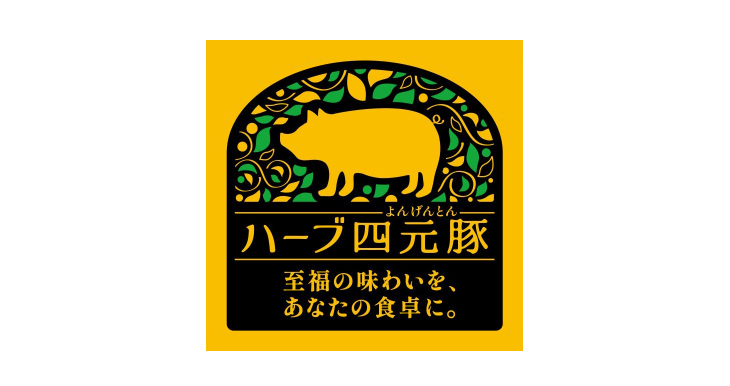
Tamura Yongenton is produced by crossbreeding four breeds of pig, while the Herb Yongenton is characterized by a special crossbreeding process and use of herbs in the feed. This may be a bit technical, but the Duroc pig breed, which contributes to the meat's sashi (marbling) – a quality of meat that is particularly popular in Japan – being incorporated into the crossbreeding process twice is a major difference between Herb Yongenton and other brands. As SC Foods has been selling Yongenton and Herb Pork separately, the new product is really the best of both worlds.
To begin with, imported Yongentonis quite rare due to the time and cost required to produce and manage it. No other company produces this product in combination with additional herb feeding, as we have done in this case. In many respects, this is a high-end brand with elements not found elsewhere.
Fujita These differences also have a significant impact on taste and nutrition. A taste test conducted by a third-party agency showed that this pork "outperforms our previous Yongenton product in terms of taste and flavor," and it was evaluated as being more tender with stronger marbling, a less distinct odor, and juicier and more nutritious. Another advantage we have over domestic pork brands is our price competitiveness.
This brand is truly an improvement on Yongenton Silky Pork. How did you go about developing it?
Tamura We approached Clemens Food Group (CFG), one of our pork suppliers in the U.S., and asked them about a joint development project. The company's own farm, with carefully managed rearing environments and meticulous livestock management and traceability*, reassured us in terms of ability to provide a stable supply of products for the Japanese market, which demands high quality standards. This was a key factor in our choice of partner.
The specific crossbreeding was determined through repeated taste tests based on the ideas presented by CFG and discussions to determine the optimal crosses, taking into consideration the cost of each option.
* Traceability refers to information on the production and processing of products and their route to distribution and consumption.
Fujita For the first time, SC Foods conducted a "Diary Survey." Sixteen households in the main customer group were asked which brand of pork they bought, why they chose that brand, and so forth. This research method allows us to delve deeply into the emotional and psychological factors in different pork product purchases. The results and insights gained are reflected in brand development and marketing. For the Japanese market, where many consumers are particular about taste and quality, we have focused on the questions of “How to deliver the product to the customer” and “How to create products that will satisfy the customer."


Respect for Partners Leads to Higher-Quality Product Development
Did you encounter any difficulties in the process of developing the new brand?

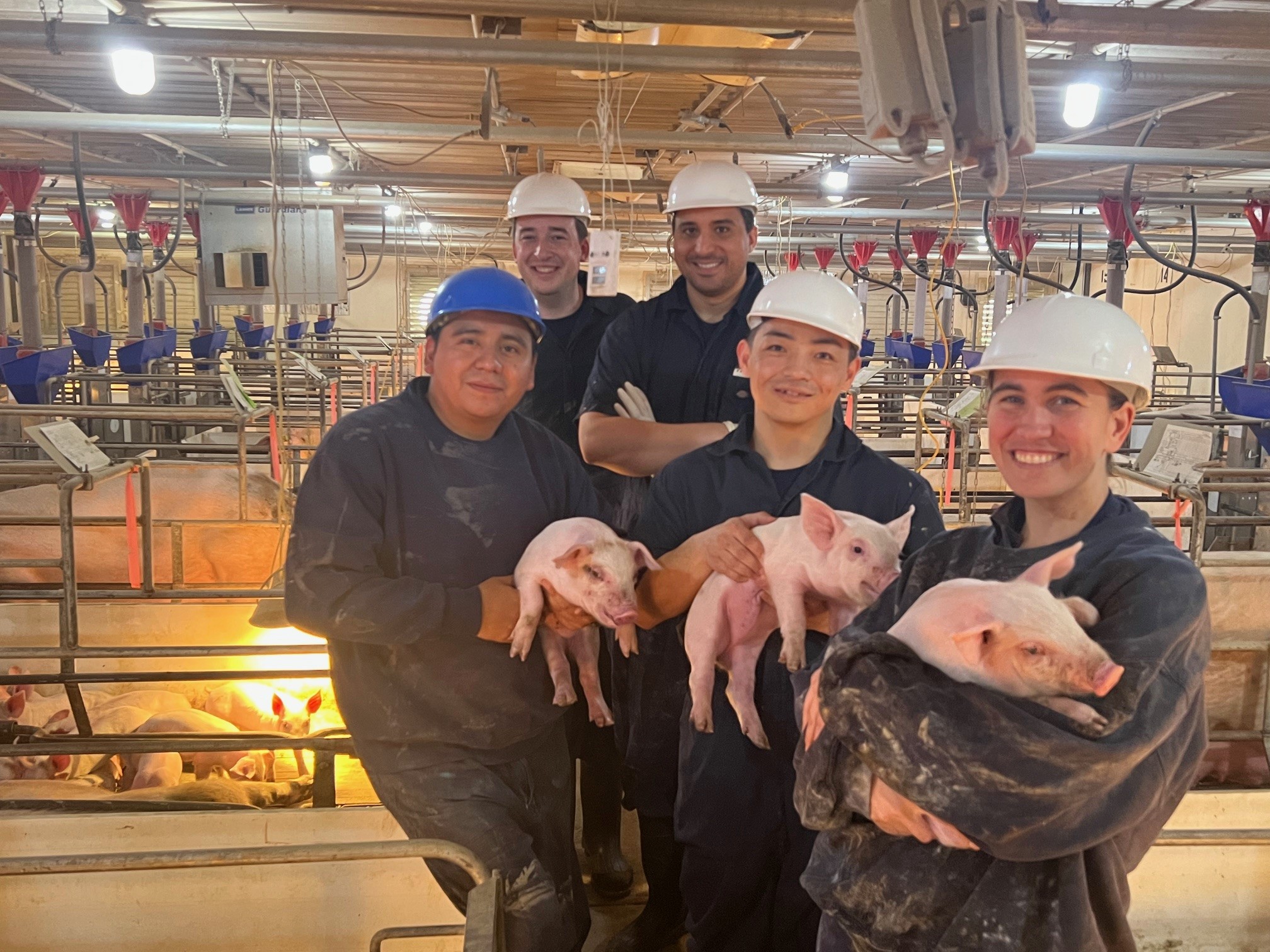
Tamura We hit a roadblock when we approached the supplier about joint development. CFG's initial reaction was, "That sounds interesting, yet also difficult to accomplish when factoring in breeding and feeding operations." To convince CFG, we carefully explained the positioning of the brand in the Japanese market and our thoughts on brand development. Eventually, we were able to reach an agreement.
The process from the decision to collaborate on development, to perfection of the brand and the first shipment took about two years, and required a great deal of patience on the part of both CFG and ourselves. Despite ongoing tension, we continued to communicate our belief that creating something not easily imitated is the only way to gain long-lasting market support. CFG seemed to share this belief and was thus highly motivated to work with us.
Fujita SC Foods has a veteran trading department well versed in the imported meat business. I must admit I felt some pressure that my knowledge – gained in just a few years in the industry – was sometimes inadequate.
I worked hard to earn the trust of project members, through all the advance preparation possible and communicating with them based on my own ideas. I am grateful and further encouraged to return the valuable experience of our members to the project.
What do you find rewarding about the business you're leading, and what are your thoughts on future projects?
Fujita Of course, it's important for our products to be safe and dependable, but with global prices soaring, I find it highly rewarding to be able to provide consumers with satisfaction not only in taste, but also in price. I am also committed to supporting the stable supply of pork, a major protein source, from behind the scenes.
The best part of being involved in the meat industry – which is very familiar to everyone – is that it's easy to grasp “to whom” and “how” the products in question are delivered and consumed. Being on the supply side as well as a consumer myself, I'm continually motivated to bring better products to market.
Tamura and I have worked together for many years and have developed a strong relationship and trust. My hope is to accelerate our efforts while continuing to communicate closely with him.
Tamura Partially due to the recent depreciation of the yen, the price competitiveness of imported products is declining relative to previous years. However, the imported pork market accounts for more than half of all pork consumed in Japan, and we feel a sense of pride and responsibility in our roles at the foundation of the Sumitomo Corporation Group’s food business.
Another key lesson I have learned by working in the U.S. is to remain aware we are on an equal footing with our partners. Mutual respect and dialogue lead to better product development. We will continue to work as a team whose members respect each other, and together with our suppliers and customers, we aim to create a prosperous future for the global food industry.


